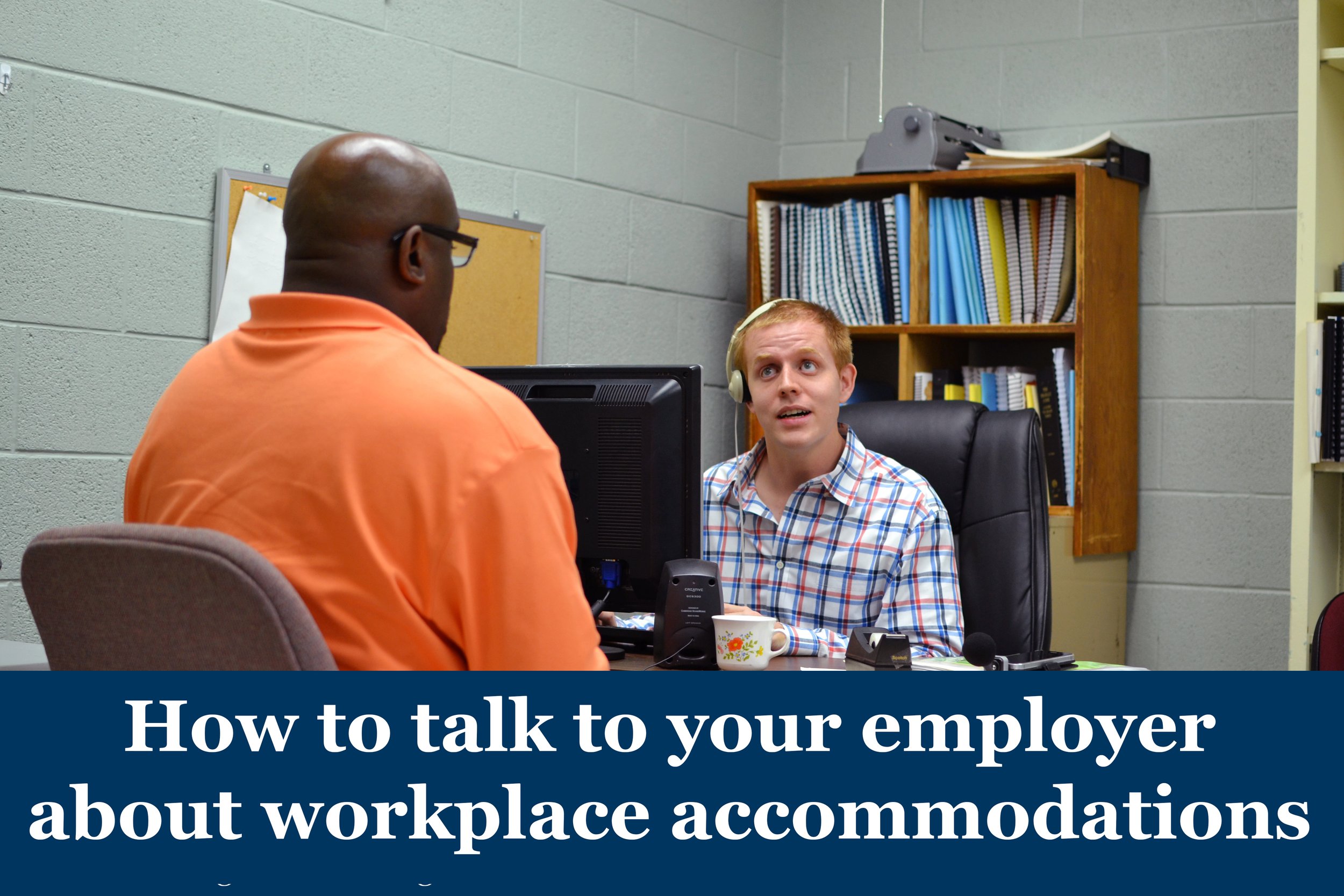How to talk to your employer about workplace accommodations
/WSB client and instructor practicing an interview at a desk with white text underneath “how to talk to your employer about workplace accommodations”
How to Talk an Employer about Workplace Accommodations
October is #NDEAM or National Disability Employment Awareness Month. And at WSB, we know the struggle it can be to find a job as someone who is blind or visually impaired. We also know how much harder it is to find a job as a person who is blind or visually impaired, and it can be daunting to have to ask for accommodations on top of just finding a job! But to celebrate NDEAM, we are sharing a few tips of how to talk to your employer about workplace accommodations.
1. Go over what you need with your rehabilitation counselor
Your rehabilitation counselor can help you decide what accommodations are necessary for your workplace, as well as help you practice having that conversation if you need it or feel nervous about talking to your employer.
2. Be your own advocate
It’s important as a person with a disability to advocate for yourself when it comes to accommodations. While it might be scary at first, being your own advocate can help strengthen your voice as a person who is blind or visually impaired and help you realize your full potential!
3. Learn about the ADA
It’s important to learn your rights in the workplace when it comes to accommodations. The ADA covers reasonable accommodations, and it is important to know what that means. While we wish it weren’t the case, not every employer is aware of what the ADA covers and how they can help employees. By being an expert and your own advocate, you can help your employer understand what you need to succeed at the job.
removing or eliminating an essential function from a job
lowering production standards
providing personal use items such as a prosthetic limb, a wheelchair, eyeglasses, hearing aids, or similar devices if they are also needed off the job
4. Know what you need and what changes need to be made
On the same vein of being your own advocate, knowing what you need to help you succeed will only benefit you. If you can go into the meeting and explain that you need JAWS software, for example, and know what type of software, it can be a smoother process all around.
5. Submit a request to HR
Each company has different policies, but it is important to submit your request in paper so that your employer has a copy. The good news is that you can request accommodations at any time during the interview process or even after you are employed.
It might be scary at first to talk to your employer about workplace accommodations but with practice, knowing your rights and what you need, and by being your own advocate you can do it! Do you have any tips for requesting accommodations? Let us know in the comments.
Follow WSB on Social Media!


